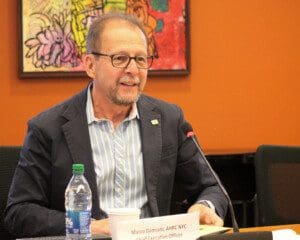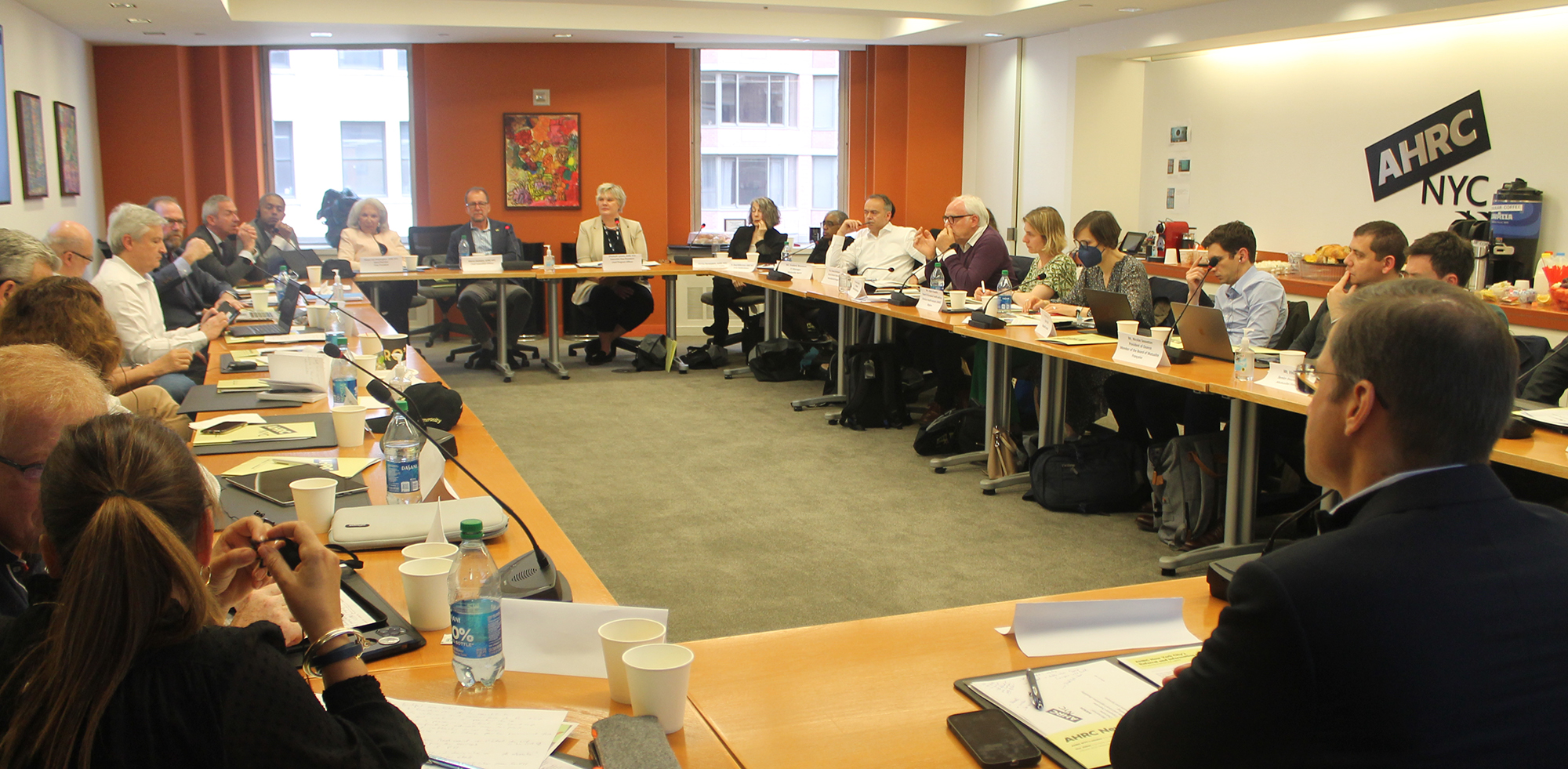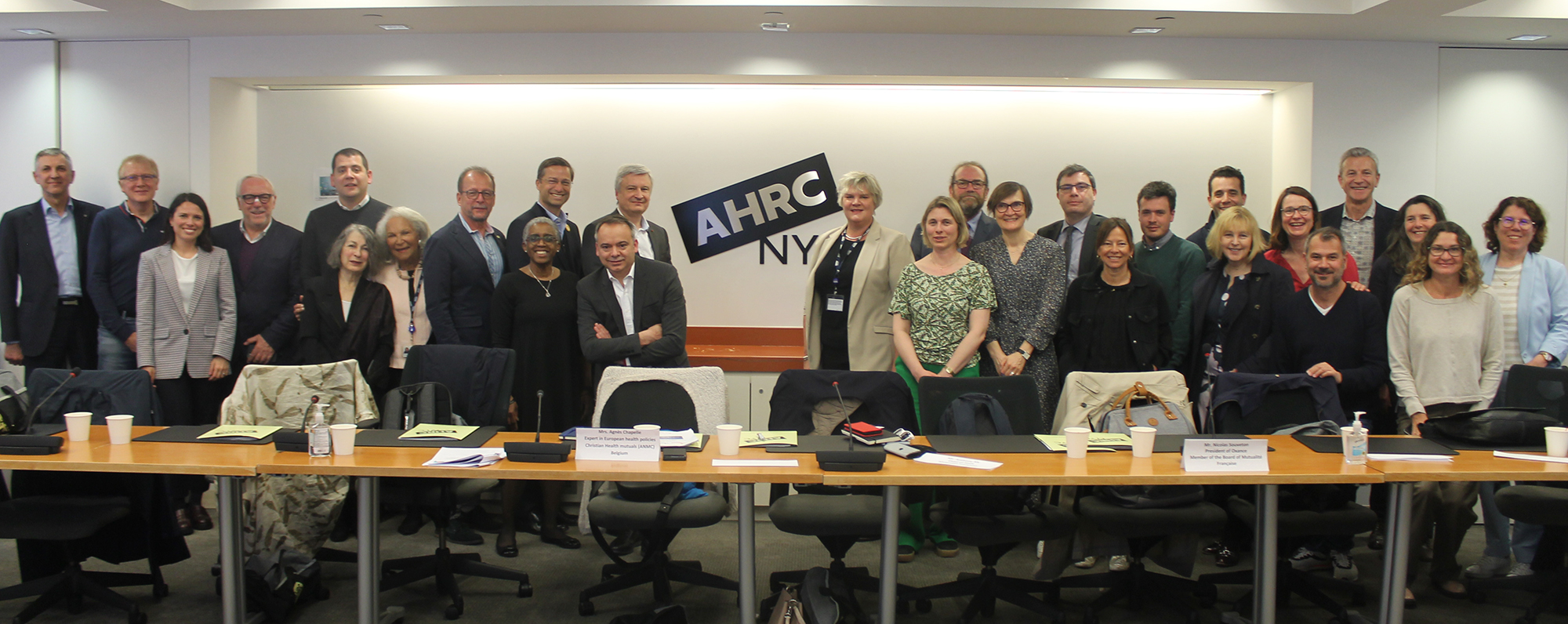A delegation of French and European Union healthcare and medical experts joined AHRC NYC leadership for a robust discussion of disability issues on Thursday, April 27th.

Marco Damiani, CEO of AHRC NYC; Betsy Lynam, Executive Vice President and Chief Program Officer; Shirley Berenstein, Vice President for Public Information and External Affairs; Sheryl White-Scott, Senior Medical Advisor; and Richard Cohen, Ph.D., Chief of Clinical Services, explained AHRC NYC’s services and supports, New York State’s history of providing I/DD services, how Medicaid funding works, and how the future of I/DD services is in peril due to a continued lack of government support. They were joined by Evan Sullivan, Executive Vice President at Ostroff Associates, a government relations firm based in Albany; Sharyn Van Reepinghen, AHRC NYC Board Member and Alexis Cazé, Partner and Chief Operating Officer at Deerfield Management, a disability advocate in the corporate sector.
“We grew stronger together after the challenges and losses stemming from the COVID-19 pandemic,” Marco Damiani said. “Now we are looking to celebrate our legacy while looking forward to our future.”
Mutualité Française
Many of the European experts attending the morning meeting at AHRC NYC Headquarters represented Mutualité Française, a French federation of non-profit health insurers and healthcare providers. It provides a wide variety of services to more than 35 million members and manages more than 2,900 healthcare facilities.

“Our services are some of the best available in the country,” said Eric Chenut, President of Mutualité Française. He explained that they operate hospitals and dental centers specialized for people with disabilities, as well as specialized services for pregnant women with disabilities.
“We are members of a social movement involved in advocacy and supporting the integration and inclusion of people with disabilities in society,” Mr. Chenut added.
Many of these opportunities and initiatives align with AHRC NYC’s existing services, such as our Family and Clinical Services department with its state-of-the-art Clinical Center for Disabilities on the 10th floor of AHRC NYC Headquarters; partnerships such as the NYU Dentistry Oral Health Center for People with Disabilities; and our extensive history of advocating for people with disabilities and their families.
Disability Services in the U.S.
Guests from Mutualité Française had the opportunity to ask questions about how disability services are funded in the U.S., employment prospects for people with I/DD, and workforce issues.
Evan Sullivan, Shirley Berenstein, and Sheryl White-Scott explained how Medicaid works. More than 90 percent of AHRC NYC’s funding comes from this federal program; individual states make decisions on which programs they will fund. For decades, New York State has had the most extensive I/DD services in the nation thanks to its $70 billion Medicaid program, nearly $8 billion of which goes to disability services via the Office for People with Developmental Disabilities. Until recently, I/DD services were severely underfunded for a decade, stretching the resources of many non-profits to the limit.
“Disability rights are a 20th-century phenomenon,” Shirley Berenstein explained. “There is no mention of disability in the Constitution or in the 14th Amendment. Rights that are only protected by the courts are now in a precarious state.”
Betsy Lynam described AHRC NYC’s supported employment opportunities and partnerships with corporate entities such as Salesforce which has committed to employing people with disabilities. Finally, guests from France explained that they have similar problems regarding the direct support workforce as New York State does—many job vacancies due to the low-paying and demanding nature of the work.
AHRC NYC was grateful for the chance to confer with experts from Europe and beyond and looks forward to future opportunities to work together in concert with disability services partners from across the globe.
